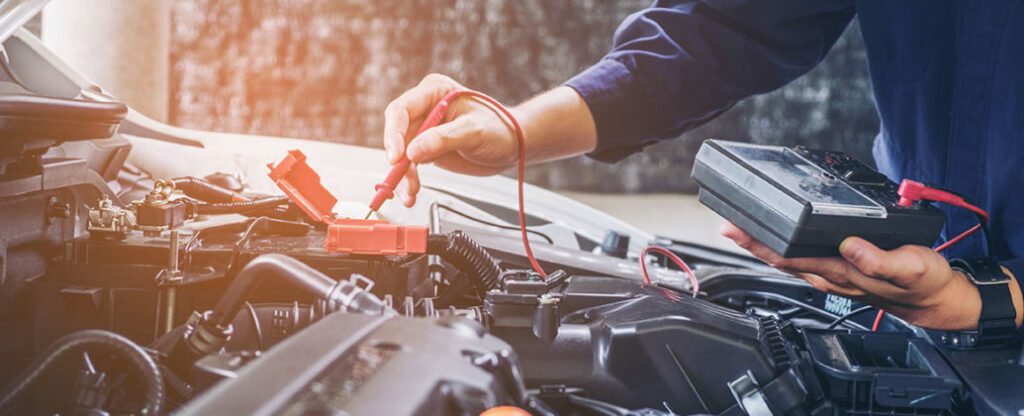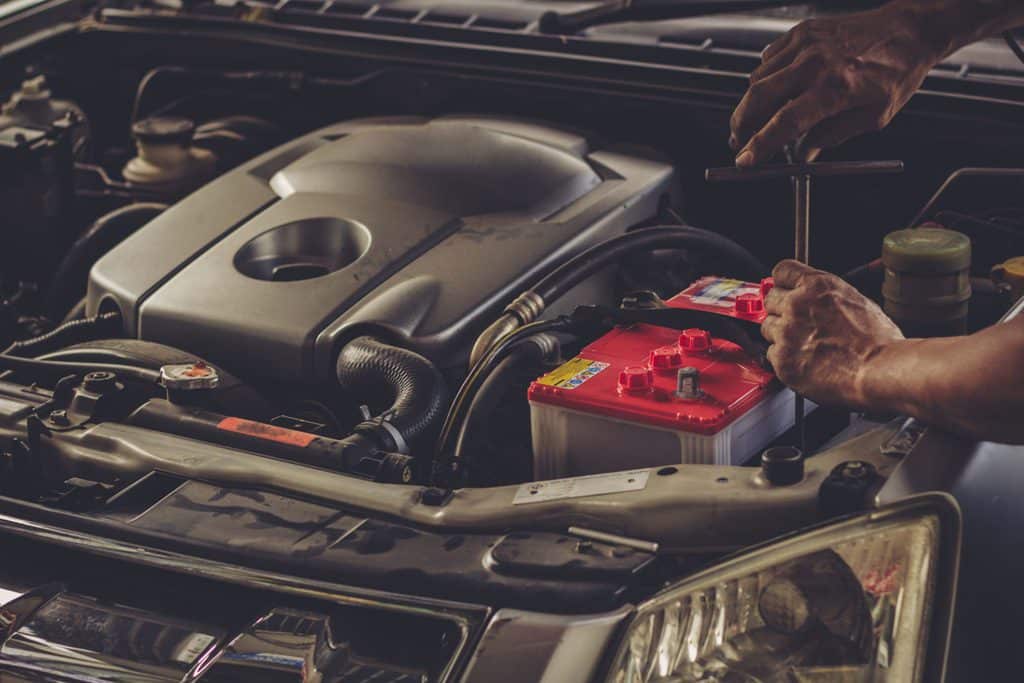Car Battery Replacement & Maintenance
📢 Did you know that car battery failure is the #1 cause of vehicle breakdowns?
Routine car battery inspections are the best route to prevent your car from breaking down when you least expect it (or when you’ve left your headlights on all day – draining your car battery down to 0%).
At your local Kwik Kar in Texas, we have been providing a variety of automotive services like car battery and maintenance to drivers in Texas for decades.
You can trust that your car battery installation service is performed by a certified mechanic fully trained on complex auto systems. We have multiple locations around Texas, including Dallas and Fort Worth for your convenience.
How Your Car Battery Works
Your battery does more than provide the jolt of electricity required to power all of the car’s electrical components. It performs two essential functions:
- Gets Your Car Started
Your car battery delivers voltage to the starter by converting chemical energy into electrical energy. This gives your car the power it needs to start.
- Keeps Engines Going
In addition to delivering the required energy to start your car, the battery also provides a steady stream of voltage (energy) to keep your engine running throughout your drive.

When Should I Replace My Car Battery?
We recommend you have your battery checked every six months.
On average, a car battery remains reliable for about four years, but there are several factors that can lead to shorter or longer lifespans. Age, under-hood temperatures, vehicle vibrations, and extreme cold and hot climate conditions damage the internal components of a battery, limiting its life expectancy.
Even under the most ideal conditions, chemical reactions cause batteries to break down, and your vehicle will likely need a new battery within a few years.
If your car battery is three or more years old, have it tested at your nearest Kwik Kar location. We will let you know if it is time to replace your old car battery.

Signs You Need A New Car Battery
- Your car won’t start and you need a jump-start it to get it running
- You notice the engine struggling to turn over upon ignition
- You see a new indicator light illuminated on your dashboard
- Some of your electrical components aren’t working (power windows, radio, wipers, dashboard lights, headlights, etc.)
- Your headlights dim when you turn on your heater
- Your battery is over four years old
- You smell rotten egg coming from under the hood
- The car battery itself seems swollen
- You see white, blue, or orange fuzz forming around your battery
Contact Us Today
If you need a new car battery, reach out to the team at Kwik Kar. We would be happy to assist you in choosing the right type of battery for your vehicle and answer any questions you may have.
We can also assist you with a variety of other auto repair services including brake repair, tire service, transmission repair, oil changes, wheel alignment and much more.
We are proud to offer quality auto services at a fair price! Contact us for all of your automotive needs in Texas.



